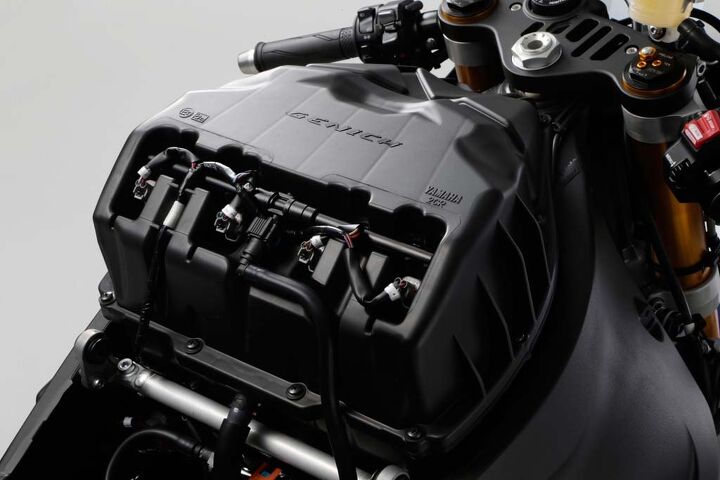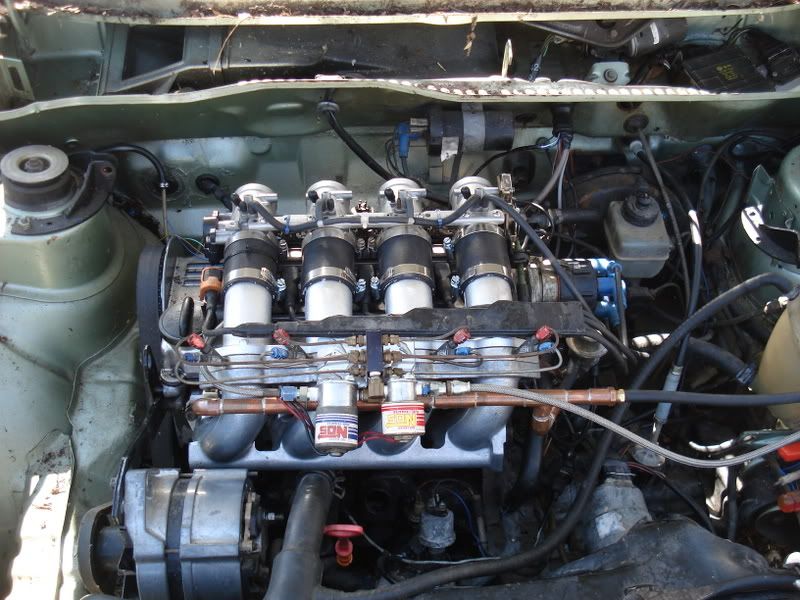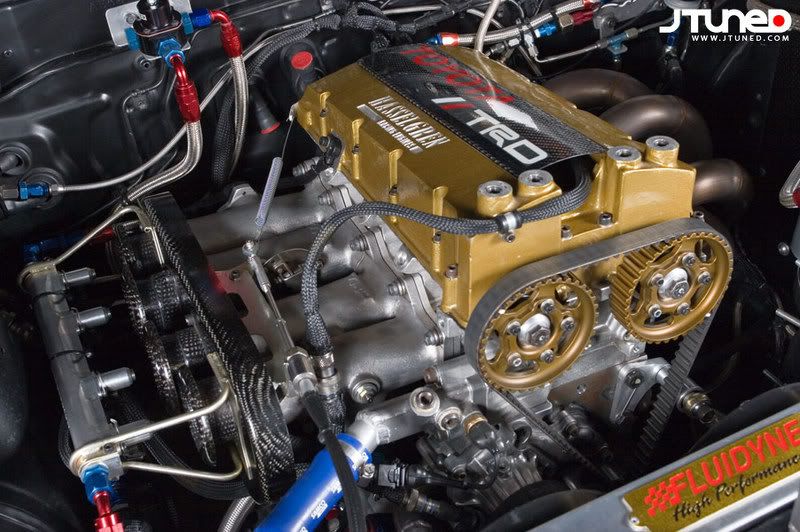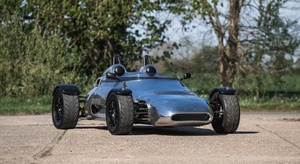I see conversions for these where an adaptor is made to mount these on a modified car intake and then the injector holes are plugged on the original intake.
How about if the injector holes were plugged in the itbs and the itbs were just used for the throttleplates...? Hmmm... That way could use the stock injectors and fuel rail...
While using the throttle body throttle plates and TPS.
Hmmm. Sounds too simple.
Car in question is my 86 8v VW GTi that would use a cross flow head and stand alone...
If you have stock port-mounted injectors, that's the better way to do it (port-mounted injectors are best), and how I'll be putting blacktop ITBs onto my 4AGE 16v with a custom adapter. So the way you want to do it is smart.
The thing is... you want the throttle plate as close to the port as possible in order to truly get the benefit of ITBs.
Swank Force One wrote:
The thing is... you want the throttle plate as close to the port as possible in order to truly get the benefit of ITBs.
So if you wanted 6 inches of runner length (completely random) you want the TB as close as you can get to the port and add horn length to tune? Why is this?

IIRC you want both the injector AND the throttle plate as close as possible, right? The one thing which concerns me: IIRC there is a certain intake plenum to engine displacement volume ratio (the volume between the throttle plate(s) and the intake valve) necessary for best overall driveability. ITB's mounted very close won't provide this and can kill bottom end for that reason. In the end it may not be a problem but is worth at least looking into. Also from my limited knowledge of how motorcycle engines are tuned the air box volume (this is on the outside of the throttle plate) is essential as well.
About tuning the air horn length: Mazda went to a lot of trouble and expense to develop an adjustable length air horn for the R26 motor used in the 787B. The cables, reels and servo motors are easily visible in this picture:

This was done to maximize HP and torque across the range. I dunno how easy it might be for a DIY to build such a system but it's certainly possible. Mazda also used a simpler variable length intake runner system (between the TB and the intake ports, not as a variable air horn) on the S5 NA rotary and variable length runner intakes are very common nowadays.

noddaz
Dork
1/16/15 10:38 a.m.
captdownshift wrote:
easy button
If you have an extra $1,691.75 laying around.
I like that system, less fuss, less muss. But I don't have the cash...
mazdeuce wrote:
Swank Force One wrote:
The thing is... you want the throttle plate as close to the port as possible in order to truly get the benefit of ITBs.
So if you wanted 6 inches of runner length (completely random) you want the TB as close as you can get to the port and add horn length to tune? Why is this?
Turbulence and velocity things, i do believe. I'm not great with the actual mechanics of it, but i do know that this is pretty much a "rule of thumb" with actual results to back it up.
On the Escort, i have a set of IM flanges that have as short a transition as possible to match the Gixxer 1000 ITBs, then i use the Gixxer 1000 injectors and some custom fuel rails. Injectors feed into the throttles as originally intended.
I've done a lot of research into DIY variable trumpets, and if you go that route, you should NOT go for sliding trumpets like Mazda did. That setup is very hard to seal even if you're a big manufacturer, and if it doesn't seal well you'll get the worst of all worlds from your trumpet setup - which is what happens every time someone tries sliding trumpets in FSAE.
You want Yamaha-style splitting trumpets. Very easy to seal and mechanically simpler.
Here you can see them split open, creating a short trumpet:

There is no "best placement" for injectors
Injectors that are closer to the intake valves are best in low rpm situations and idle well.
Injectors on the other side of the throttle plate are best in high RPM areas.
There used to be a cool video showing the staged F1 setup. Big sport bikes have little injectors in the throttle bodies and much larger ones in the airbox too.


The bike engine builders are the ones to watch and emulate on stuff like this, they get massive power relative to displacement, keep driveability (rideability?) and do the whole thing with a warranty.
This is the setup I am just finishing up. Borla/Redline DCOE pattern ITB's on a twin spark Alfa 2 liter. AEM infinity management.

There is a dip in the power band that I can move around by changing trumpet length but never goes away. this is where we settled.

They are loud and touchy and make idle control a pain. Unless a customer asks for them, I probably won't do them again.
Huh didn't know you could get a rev-dependent performance difference from different injector locations, I thought that port-mounted was simply best for efficiency.
Guess that explains why pre-hybrid-V6 F1 engines had the injectors sitting well above the ITBs...I thought it was for packaging reasons, especially with the pneumatic valvetrain taking up space in the head.
Jumper K. Balls wrote:
This is the setup I am just finishing up. Borla/Redline DCOE pattern ITB's on a twin spark Alfa 2 liter. AEM infinity management.
There is a dip in the power band that I can move around by changing trumpet length but never goes away. this is where we settled.
Yeah, that's why Mazda went to all the trouble to build adjustables, that way they could futz with the torque curve as needed with the engine running. Oh yes it was complicated and expensive!
Jumper K. Balls wrote:
They are loud and touchy and make idle control a pain. Unless a customer asks for them, I probably won't do them again.
I knew about the noise but not the touchy idle. Is it not possible to completely close all 4 ITB's then use a bypass type IAC to run that part of things?
ITBs usually use an IAC valve to control the idle. Tuning them can still be a nightmare though, it can be especially difficult to get a smooth vacuum level from them. One trick that I heard helps a lot is to tee all the individual vacuum ports into one before connecting them to anything else.

GameboyRMH wrote:
ITBs usually use an IAC valve to control the idle. Tuning them can still be a nightmare though, it can be especially difficult to get a smooth vacuum level from them. One trick that I heard helps a lot is to tee all the individual vacuum ports into one before connecting them to anything else.
That and a restrictor in the line into the MAP sensor.
With ITB's you'll want to run Alpha-N as SWF denotes, but with MS2 and later you can use ITB or Blended mode where you can run MAP at idle/low RPMS and then switch over to Alpha-N.
Here's some info on tuning ITB's using blended mode on a 4-cylinder:
http://77e21.info/megasquirt.htm
When I was playing with ITB's on my 924, I found that AE was a pita to get right (never did get it right) and having the injectors in the throttle bodies made it a royal pain to get it to start from cold. Idle wasn't hard to get working, even without an IAC.
Once I put the fuel rail/injectors into the stock location on the motor (in the head right above the intake valves) it started right up without hesitation. So I think the ideal (which some have messed with already) is to run two sets of injectors, one close to the intake valve for easier idle and starting, then another set further away for higher RPM operation.
Why not wrap them into a feeder airbox and use MAF? Seems to work pretty well for the OEM's, can draw air from a 'cool' location, and can even get some ram air effect at speed.
Driven5 wrote:
Why not wrap them into a feeder airbox and use MAF? Seems to work pretty well for the OEM's, can draw air from a 'cool' location, and can even get some ram air effect at speed.
Most MAFs tend to be hinderence to ultimate power output (even the hotwire units) and a proper plenum design is very difficult to pull off with ITB's and not lose power output.
Not to say its a bad idea, but if you're going to do all that work, might as well run a single TB and get on with it.
Curmudgeon wrote:
I knew about the noise but not the touchy idle. Is it not possible to completely close all 4 ITB's then use a bypass type IAC to run that part of things?
That box under the tb's is the common vacuum source for the MAP sensor. I am going to cap off the 1/16" vacuum lines that are currently feeding it and fit some larger 1/4" lines. Then we can mount a stepper ISV to that box to control idle. I will be doing this next week.
I did a set of homebrew bike ITB's on my VW 16V back in 2005 when megasquirt alpha-N tuning was in its infancy. They worked but my tuning was lackluster and I am sure they were never synced correctly. It felt so much better with a single throttle.

turboswede wrote:
Driven5 wrote:
Why not wrap them into a feeder airbox and use MAF? Seems to work pretty well for the OEM's, can draw air from a 'cool' location, and can even get some ram air effect at speed.
Most MAFs tend to be hinderence to ultimate power output (even the hotwire units) and a proper plenum design is very difficult to pull off with ITB's and not lose power output.
Not to say its a bad idea, but if you're going to do all that work, might as well run a single TB and get on with it.
...and if you want variable plenum volume in with that single TB, the diagrams you'll find on page 42 of the link describing the BMW N52 provide an interesting description of something that at least gets you similar results across the RPM range as varying the plenum volume.
http://www.kneb.net/bmw/E90/04_N52%20Engine.pdf
How you'd ever figure it out yourself is a whole 'nother question.
In reply to Jumper K. Balls:
What about using a balance tube, similar to what the old SU intakes used, to feed idle air to the engine? Close the TB's completely, tee the balance tube, then run an air intake hose from the clean side of the air filter to the IAC then to the tee in the balance tube?

Curmudgeon wrote:
In reply to Jumper K. Balls:
What about using a balance tube, similar to what the old SU intakes used, to feed idle air to the engine? Close the TB's completely, tee the balance tube, then run an air intake hose from the clean side of the air filter to the IAC then to the tee in the balance tube?
That's essentially what most factory ITB and most aftermarket ITB solutions provide in some way or another.
My TWM units had throttle bypass screws that allowed you to tune the amount of air bypassing the throttle plates at idle. They also had interconnected balance tubes with a vacuum port on each pair of throttle bodies that I tee'd into a system that allowed me to introduce an old Bosch AAV. I used the stock CIS injector ports in the head for vacuum signal, worked ok with what little vacuum that engine pulled.
It really wouldn't be too hard to simply add some vacuum ports to the intake tubes to get the necessary vacuum signal and provide a way to introduce bypass air to adjust idle speed.
Like I said, I never had a problem with idle speed once the car warmed up, idle was pretty stable at about 900rpm.
I've done it on my '77 Rabbit 16v, and deliberately used the longer runners of the stock intake manifold to retain a little lower end and make it so it was a little more street friendly.










































